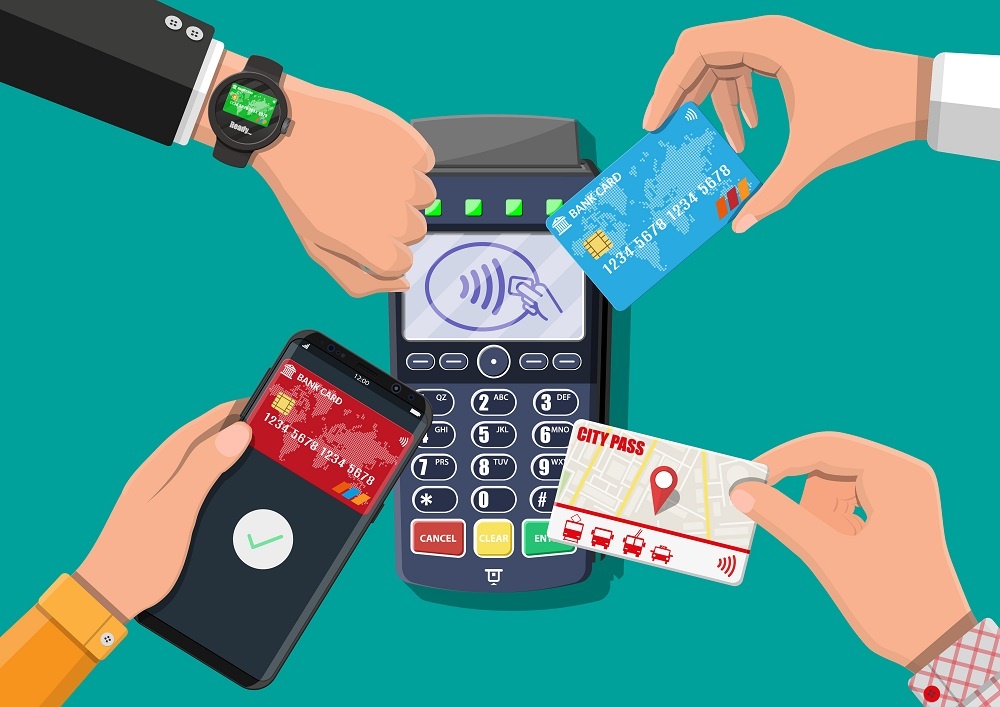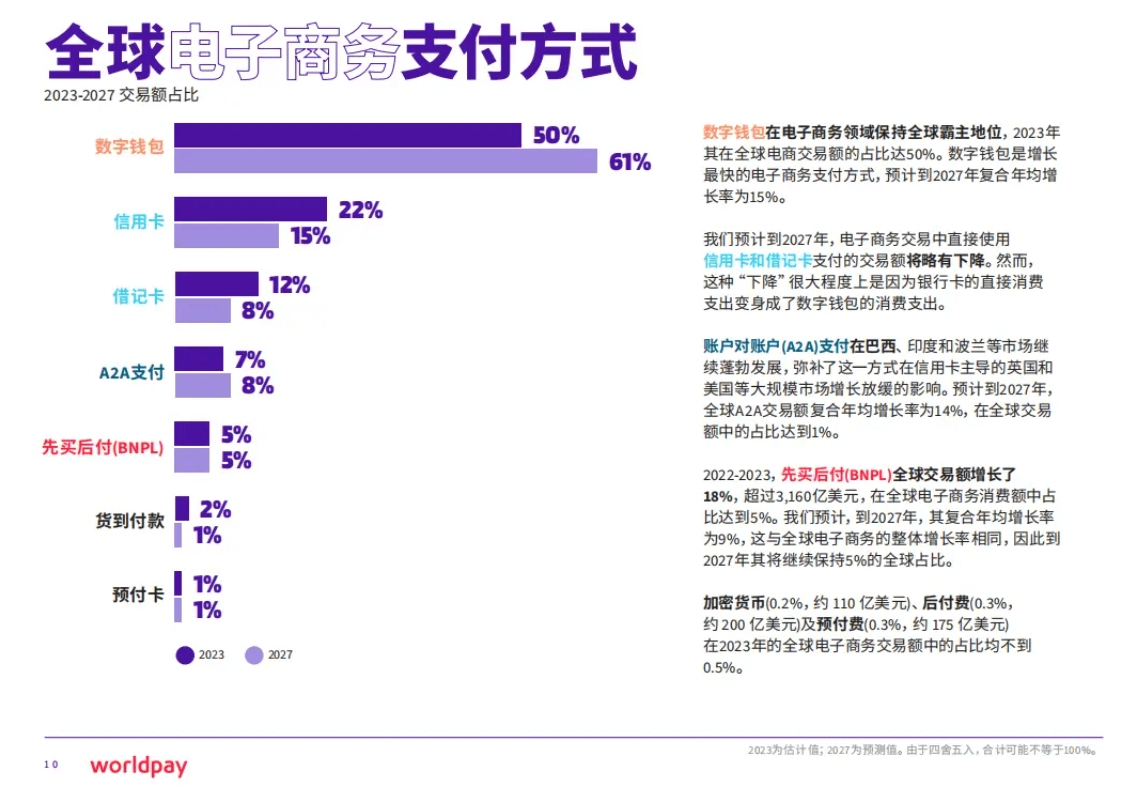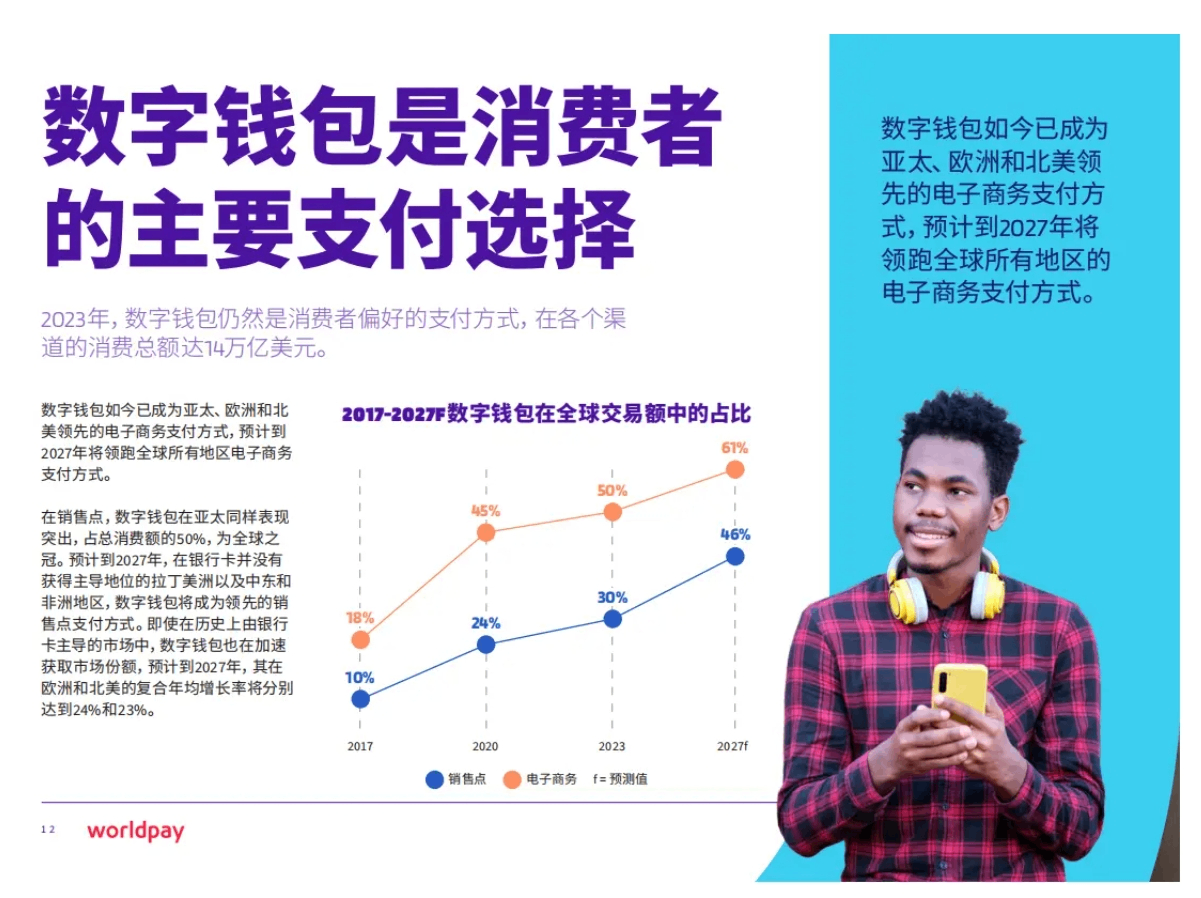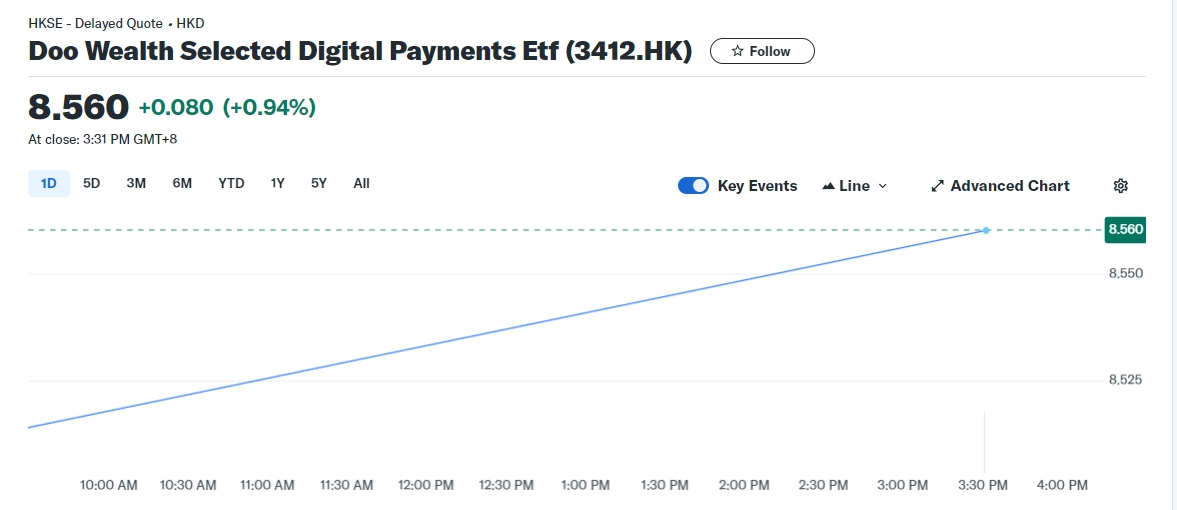Post-pandemic digital payments to half of global transactions by 2027
Digital payments are rapidly replacing cash and cards as the world's fastest-growing payment method.
Purchasing items by scanning QR codes or using electronic wallets for payment is what constitutes electronic payments. Electronic payments effectively unite the internet, financial institutions, and individuals' terminal devices, forming a new type of payment system.

It is precisely because electronic payments do not require the exchange of physical currency that they possess many advantages that traditional payment methods do not have, such as convenience and speed. As long as users have terminals like mobile phones, they can complete payments anytime, anywhere, greatly enhancing transaction efficiency. Additionally, compared to cash, digital payments usually have stricter security measures, and every transaction record can be electronically saved and tracked, which has also become a reason for the prominence of electronic payments in the post-pandemic era. Because of this, since 2018, the usage rate of digital wallets has increased fourfold, while the usage rate of cash has declined by nearly half, with many people even proclaiming the "death of cash."

Currently, the development of electronic payments is intensifying, and it is expected to replace more payment methods in the future. According to the latest global payment report released by Worldpay, as of 2024, the proportion of digital wallets in global e-commerce consumption has reached 50%, with a total consumption exceeding 3.1 trillion US dollars. Even at offline sales points, the consumption amount of digital wallets can account for 30%, with a total consumption exceeding 10.8 trillion US dollars. At present, electronic payments are accelerating the replacement of cash and bank cards, becoming the fastest-growing payment method globally. Worldpay estimates that by 2027, half of the transactions worldwide will be conducted electronically, with a total payment amount exceeding 25 trillion US dollars, a staggering figure that is close to the annual GDP of the United States, the world's largest economy.

Adhering to the spirit of "if you can't beat them, join them," industry giants have begun to deploy their own electronic payment solutions, launching a "beachhead battle" to capture payment habits in their respective fields. First are the e-commerce platforms most closely related to online payments; in recent years, Mercado Libre in Latin America, Amazon in the United States, Rakuten in Japan, and Shopee in Singapore have all introduced their own electronic payment solutions. Next, some banks that started with traditional payment methods, such as Danish banks, Turkish banks, and Argentine banks, have also launched their own digital wallets, moving towards new payment methods. Even super apps like WeChat and Alipay are capturing the digital wallet market. PayPal, headquartered in the United States, is one of the most influential digital wallets globally, maintaining annual revenues of over 20 billion US dollars just from transfer fees, reaching 30 billion US dollars last year, and it is very likely to maintain this level in the future. Such a large piece of the pie is hard for traditional banks to resist.
So, how can ordinary people seize the electronic payment dividends in the post-pandemic era? First, they can buy stocks related to electronic payments; second, they can purchase passive funds that track the IPAY index, which targets the Prime Mobile Payments Index, mainly tracking the stock prices of large communication companies such as credit card networks, payment infrastructure, and software services; third, they can also buy actively managed funds similar to Doo Wealth, which mainly track the stock prices of large electronic payment companies such as Apple, Oracle, Amazon, VISA, and share in the future development dividends.


·Original
Disclaimer: The views in this article are from the original Creator and do not represent the views or position of Hawk Insight. The content of the article is for reference, communication and learning only, and does not constitute investment advice. If it involves copyright issues, please contact us for deletion.